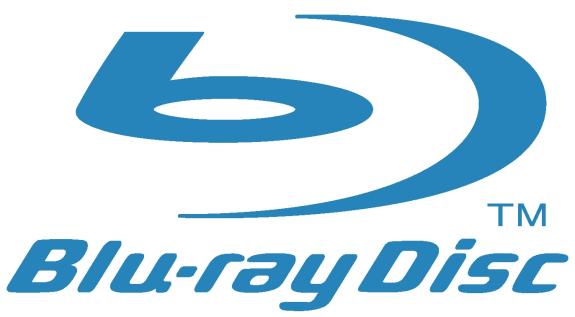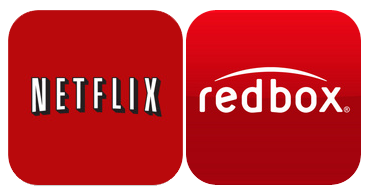Cinavia DRM: How I Learned to Stop Worrying and Love Blu-ray’s Self-Destruction
by Ganesh T S on March 21, 2012 11:00 AM EST- Posted in
- Home Theater
- Blu-Ray
- DRM
- Cinavia
DRM (Digital Rights Management) is intended to protect media from being played in an unauthorized manner. However, more often than not, it fails to serve the purpose. Many people in the content industry are fully aware that it is not possible to stop media piracy. They view DRM as a method to slow down the pirates. The panel discussion on anti-piracy measures at the HPA 2011 Tech Retreat compared this to using a key to lock a car, even though a thief with proper equipment could still steal it.
High definition content is valued by the content owners, resulting in extra efforts being taken to protect them from being pirated. For example, while standard definition Netflix streams play on a variety of platforms, high definition streams require more secure systems with protection across all stages of playback. Similarly, not much effort has been taken to stop the usage of open source DVD decrypters / decoders, which mean that the consumer doesn’t need to invest in a licensed player to play back DVDs. Open source software like VLC can play back protected DVDs without any issues.
Blu-rays, on the other hand, with their high definition content, are yet to be hacked enough to be played back with full experience using open source tools. There is a constant tussle going on between the decryption tool makers (who enable the Blu-ray disc content to become unprotected) and the Blu-ray publishers who don’t want this to happen (and try to find new ways to encrypt their Blu-rays without breaking player compatibility in the field). The net result is that almost every new Blu-ray fails to play back on a player if it doesn’t have the latest firmware updates. This is obviously a drawback for consumers who just want to put the disc in the tray and enjoy the movie.

In today’s piece, we will be concentrating exclusively on Blu-rays. A look at the market trends seems to indicate that online streaming services like Netflix and Hulu are overtaking conventional media distribution channels such as DVDs and Blu-rays. However, this doesn’t mean that optical media will die out anytime soon. Currently, a large number of consumers don’t have reliable enough Internet access to guarantee a good experience with premium streaming services. Market research indicates that Blu-ray sales have indeed shown an annual increase. This growth can be attributed to the low cost of Blu-ray players (some could be found for as low as $49 last November) and the rising number of $5 Blu-rays available in the bargain bins of various big box retailers. Blu-ray rentals from companies such as Redbox have also shown an increase in popularity.

The BDA sees Blu-ray shipments growing for the foreseeable future. However, they have also realized that the future of the Blu-ray industry lies in eventually adapting to the cloud / Internet infrastructure. The UltraViolet initiative is geared towards this. We will look at this in detail later in the piece.
The rise of VoD services will definitely threaten Blu-ray, particularly because of the ease of use associated with them. In almost all cases, one can start watching a movie on Netflix or Vudu with a few clicks. Compare this with current Blu-rays where users have to put up with a number of trailers and copyright messages before the movie starts playing. It is no wonder that consumers with high speed Internet often prefer services like Vudu over Blu-rays. Given this situation, Blu-rays continue to come with pesky DRM mechanisms. The latest in this lineup is Cinavia. Before going into its details, we will have a brief overview of all the DRM mechanisms involved in Blu-rays.










121 Comments
View All Comments
SpaceRanger - Wednesday, March 21, 2012 - link
Those aren't youtube videos..
ganeshts - Wednesday, March 21, 2012 - link
Thanks for the note. We had initially uploaded to YouTube, but later shifted to DM on account of copyright concerns (Fair use and all that is good to talk about, but the possibility of tussling that out with YouTube is not something we really want to do). I have fixed the text.yelped - Wednesday, March 21, 2012 - link
Yup, this idiocy is really getting out of hand.I personally don't watch movies at all, but I hate watching all this big-brother bullying.
So, thanks for writing this article!
zxr250cc - Friday, March 23, 2012 - link
I worked for a medium size consumer electronics manufacturer in Japan when DVD was about to launch as a director or marketing. Many of the regional distributors in various global markets for future DVD players were asking me about the Regional encoding for disks and how it would affect their sales or ability to have content. I told them then that the stupid idea of having a region for disks would create a so called 'black market' for region free players. I have also worked in the US high end manufacturing sector and followed the 'breaking' of all encryption schemes with great interest.I have done many public AV demonstrations with disk based source material and I always have been EXTREMELY OFFENDED by the FBI label telling me I am a thief for disks that I purchased at retail for my use. Anyone ripping the titles will choose to delete that stupid and offensive section of the disk and the only loser is the normal retail user. Any copy protection code will be broken quickly. ANY... If Blu-Ray wants to be succeed for a longer period of time it should be attempting to be easier to use. HDMI and HDCP are only short term solutions that have caused more trouble than they have fixed, by a long sight. USELESS FEATURES, FORCED TRAILER VIEWS and other such idiocy merely feed into consumer dissatisfaction with the format.
Make it easy to use for the normal retail customer, make it have good simple features and put the stupid FBI and trailer views in the back of the disk, if they are there at all, and let the consumer watch their purchase in peace. I hate the various encumbering schemes attempted to make using products that we have paid good money for and irritated by while trying to enjoy a movie.
Cheers,
zxr250cc
SlyNine - Wednesday, March 21, 2012 - link
DVDFab has a free DVD/Blueray decryptor. Which will burn a bluray in to a folder structure on your HDD.I use ClownBD to get demux the video/audio and MKVtoolnix's MKVmerge to remux into MKVs.
Sorry to hijack your thread but I wanted this on the first page.
SlyNine - Wednesday, March 21, 2012 - link
And to save money on backups, Flexraid is AWESOME. Snapshot based raid for free baby.Aankhen - Thursday, March 22, 2012 - link
I liked the bit about both of the three videos too. ;-)Death666Angel - Wednesday, March 21, 2012 - link
"A look at the market trends seem to indicate that online streaming services like Netflix and Hulu are overtaking conventional media distribution channels such as DVDs and Blu-rays."I guess you are solely talking about the North American market? I haven't seen such numbers for Germany or Europe, much less for Russia, Asia and Africa....
ganeshts - Wednesday, March 21, 2012 - link
I believe that the European market already has some online streaming services such as LoveFilm and even Netflix is setting up shop over there soon. In India, the first VoD subscription service was started last month. Internet infrastructure needs to come up to speed first for online streaming services to be effective. So, yes, many comments in the piece are based upon our opinion, being here in the US, but we do feel that the trend will soon reflect worldwide.Kristian Vättö - Wednesday, March 21, 2012 - link
I have to say that the offerings are pretty much non-existent here in Finland. A couple ISPs offer some kind of movie rental services but the quality is 480p and you have to be a customer of that ISP to get access. Usually, you also need a specific plan which may not be available everywhere (at one point, they offered it only for ADSL contracts, high-speed optics were left out). iTunes offers HD quality but the selection is rather small, at least right now.As far as I know, there is no online streaming service similar to Netflix. All services are pay as you watch, which is quite expensive.
Also, it's definitely not the internet infrastructure that is causing it here. The average internet speed is faster here than in the US according to NetIndex. Plus we don't have any caps.
I think one of the key things is dubbing/subtitling. I think UK is a lot ahead of us because their native language is English so all content is ready for them. However, other countries have their own language. Dubbing or subtitling takes time and money, so it makes sense that the companies are concentrating on English countries first.